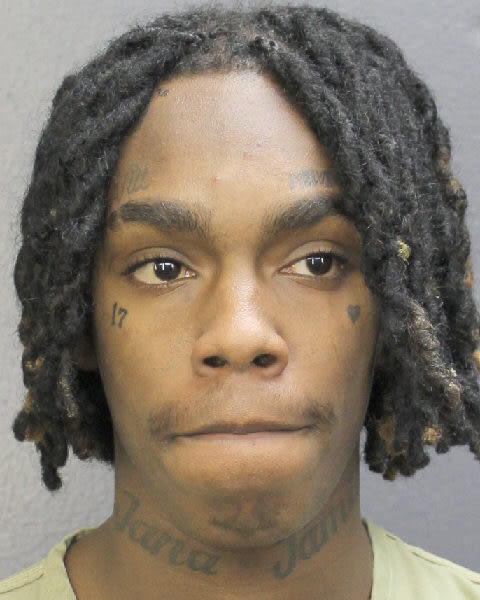 YNW Melly. Photo by Broward's Sheriff's Office via Getty Images
YNW Melly. Photo by Broward's Sheriff's Office via Getty Images
Florida prosecutors in the YNW Melly double murder retrial intend to introduce a slew of the rapper's lyrics to be introduced as evidence, the Miami Herald reports.
In a court filing made on Wednesday, Broward county prosecutor Alixandra Buckelew listed 55 songs, 18 audio files, 14 YouTube videos, and four album covers the state wishes to admit as evidence for the trial, which is scheduled to begin in February. The songs include Melly's biggest hit "Murder On My Mind."
The February trial will be the second time that Melly, born Jamell Demons, Melly will face charges in the October 2018 killing of Christopher “Juvy” Thomas Jr and Anthony “Sakchaser” Williams. If convicted, Melly faces the death penalty. The first prosecution of the case ended in a mistrial in July 2023. Read our explainer on the case here.
The potential introduction of lyrics marks a change in strategy for the prosecution. During the first trial, prosecutor Kristine Bradley told the court that the state could make its case without them. "We’re not going to get into that because that’s artistic expression. That’s not why we’re here today.” Bradley was recused from the case in October after Judge John Murphy granted a motion from Melly's defense team to have her removed.
Raven Liberty, an attorney for Melly, expressed outrage at the prosecution's motion. “To receive something this late in the game is just part and parcel of what they’ve been doing the entire time,” she told the Herald. Melly's team asked Judge Murphy to bar the state from introducing Melly's songs, music videos, and lyrics in a separate filing made on Thursday (December 14). The FADER has reached out for more information.
If the prosecution's motion is permitted, Melly would become the latest rap artist to have his creative work used against him in a criminal proceeding. Lyrics written by Young Thug, a rapper who is facing RICO charges in Atlanta, have been approved as evidence by a judge. Legislation preventing lyrics from being used in criminal trials has been passed in California; New York has considered similar legislation, and there are efforts to advance a bill through Congress.


